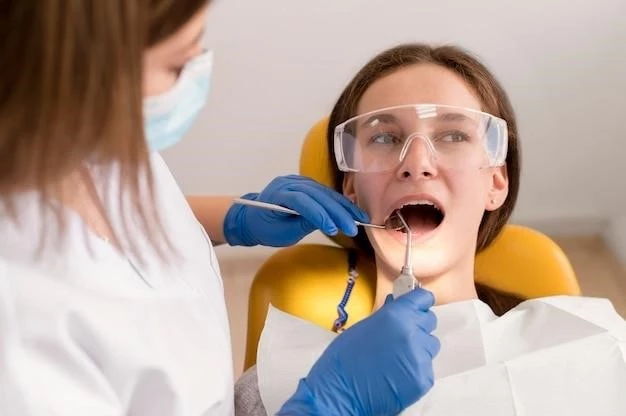Overview of Charcot-Marie-Tooth Disease
Understanding the key aspects of Charcot-Marie-Tooth Disease helps navigate the journey towards managing this condition effectively.
Introduction to Charcot-Marie-Tooth Disease
Charcot-Marie-Tooth Disease is a group of inherited disorders that cause nerve damage, resulting in muscle weakness and sensory loss. This condition affects the peripheral nerves, leading to difficulties with movement and sensation.
Individuals with Charcot-Marie-Tooth Disease may experience muscle atrophy, foot deformities, and difficulty walking. It is crucial to seek medical advice for an accurate diagnosis and appropriate management of symptoms.
Symptoms of Charcot-Marie-Tooth Disease
Common symptoms of Charcot-Marie-Tooth Disease include muscle weakness, foot deformities, difficulty walking, loss of sensation in the extremities, and muscle atrophy. Individuals may also experience difficulty with balance, numbness, and muscle cramps.
It is essential to monitor and communicate any changes in symptoms to healthcare providers promptly. Developing a thorough understanding of the typical signs of Charcot-Marie-Tooth Disease can facilitate early intervention and appropriate management strategies;
Causes of Charcot-Marie-Tooth Disease
Charcot-Marie-Tooth Disease is primarily caused by genetic mutations affecting peripheral nerves. Understanding these genetic factors is crucial for diagnosis and management.
Genetic Causes
Charcot-Marie-Tooth Disease is primarily caused by genetic mutations affecting certain genes responsible for nerve function. Specific genetic abnormalities can lead to nerve damage, affecting muscle control and sensation;
Understanding the genetic causes of Charcot-Marie-Tooth Disease is crucial for accurate diagnosis, genetic counseling, and potential treatment strategies. Genetic testing can help identify the specific gene mutations involved and guide personalized care plans.
Treatment Options for Charcot-Marie-Tooth Disease
Management of Charcot-Marie-Tooth Disease involves physical therapy, orthopedic devices, pain management, and possibly surgery. Consult healthcare professionals for personalized treatment plans.
Physical Therapy
Physical therapy plays a crucial role in managing Charcot-Marie-Tooth Disease by focusing on strength, balance, and mobility. Therapeutic exercises and gait training can help improve muscle function and reduce the risk of falls.
A physiotherapist can create a customized exercise plan tailored to individual needs. Consistent physical therapy sessions can enhance quality of life, functional abilities, and overall well-being for individuals with Charcot-Marie-Tooth Disease.
Charcot-Marie-Tooth Disease Research Updates
Stay informed about the latest research findings and breakthroughs in Charcot-Marie-Tooth Disease to understand potential advancements in treatment and management approaches.
Current Studies and Breakthroughs
Researchers are exploring potential gene therapy approaches and innovative treatments for Charcot-Marie-Tooth Disease. Stay engaged with clinical trials and research updates to access cutting-edge interventions that may impact disease progression and symptom management.
Participating in studies can contribute to advancements in understanding this condition and lead to improved outcomes for individuals living with Charcot-Marie-Tooth Disease. Keeping informed about current research developments is essential for proactive involvement in potential breakthroughs.
Coping Strategies for Charcot-Marie-Tooth Disease
Building a strong support network, practicing self-care, and seeking mental health support are vital coping strategies for managing the challenges of Charcot-Marie-Tooth Disease.
Mental Health Support
Living with Charcot-Marie-Tooth Disease can impact mental well-being. Seek counseling, join support groups, and practice stress-relieving activities to maintain emotional balance. Prioritizing mental health enhances overall quality of life and resilience in managing the condition.
Communicate openly with loved ones about your feelings and challenges. Professional mental health support can provide coping strategies, improve emotional health, and help navigate the emotional aspects of living with Charcot-Marie-Tooth Disease.
Genetic Testing for Charcot-Marie-Tooth Disease
Genetic testing can provide valuable insights into the specific gene mutations causing Charcot-Marie-Tooth Disease. Consult genetic counselors for guidance on testing options and implications.
Importance of Genetic Testing
Genetic testing is crucial in diagnosing Charcot-Marie-Tooth Disease, guiding treatment decisions, and assessing the risk of passing on the condition to future generations. Understanding the genetic basis of the disease can aid in personalized care and family planning.
By undergoing genetic testing, individuals can gain clarity on their condition, access appropriate medical management, and participate in research studies or clinical trials. Genetic counseling can help individuals and families navigate the implications of test results and make informed healthcare choices.

Lifestyle Tips for Managing Charcot-Marie-Tooth Disease
Adopt a balanced diet, incorporate low-impact exercises, prioritize rest, and use assistive devices to enhance daily living with Charcot-Marie-Tooth Disease. Consult healthcare providers for personalized recommendations.
Exercise and Nutrition
Engage in low-impact exercises like swimming or cycling to maintain muscle strength and flexibility. Consume a balanced diet rich in nutrients to support overall health and well-being. Consulting a nutritionist and physiotherapist can help tailor an exercise and diet plan that suits your specific needs, promoting optimal management of Charcot-Marie-Tooth Disease.
Staying physically active within your capabilities and making mindful food choices can complement other treatment strategies and contribute to improved quality of life. Prioritizing exercise and nutrition empowers individuals with Charcot-Marie-Tooth Disease to proactively manage their health and well-being.
